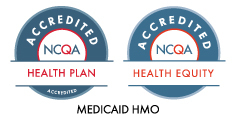All Plan Letters
The latest legislative updates are available from the Department of Health Care Services (DHCS). For more information, please contact your Provider Relations representative.
- All
- 2025
- 2024
- 2023
- 2022
- 2020
Date: Jun 9, 2023
- Beginning July 1, 2022, the Budget Act of 2021 changed the source of the nonfederal share of these payments to the state General Fund.
- The CPT Code, description and Directed Payment amount can be found on page 4 of the APL.
- More information can be found on the DHCS Directed payments – Proposition 56 website: https://www.dhcs.ca.gov/services/Pages/DP-proposition56.aspx.
Date: Jun 9, 2023
- DHCS intends to continue this directed payment arrangement on an annual basis for the duration of the program.
- Please refer to the APL for Procedure Codes, Descriptions, Minimum Fee Schedule amounts, and Dates of services from July 1, 2017 to “Ongoing” which means the directed payment is in effect, subject to future budgetary authorization and appropriation by the California Legislature, until discontinued by DHCS via an amendment to this APL.
Date: Jun 9, 2023
- The funding that was approved through June 2022 will be distributed following timely payment standards in the Contract for Clean Claims or accepted encounters that were received no later than one year after the date of service up to June 30, 2022..
- Please see Appendix A of this APL to understand the Domain, Measure and Add-on Amounts from Dates of service between July 1, 2019 and June 30, 2022.
- Services performed after June 30, 2022, are not eligible for VBP directed payments.
Date: May 18, 2023
Mandatory Signatories to the California Health and Human Services Agency Data Exchange Framework.
Network Providers are required to sign the California Health and Human Services Agency (CalHHS) Data Exchange Framework (DxF) Data Sharing Agreement (DSA) as outlined in the California Health and Safety Code § 130290. The California Health and Human Services Agency (CalHHS) Data Exchange Framework (DxF) Data Sharing Agreement (DSA) ensures that every Californian, as well as the health and human service and governmental entities who serve them, can access information needed to provide safe and effective care for all Californians, regardless of where in the state they are located.
The Department of Health Care Services (DHCS) published the CalAIM Data Sharing Authorization Guidance[1] in March of 2022, which supports data sharing between Managed Care Plans, health care providers, community-based social and human service providers, local health jurisdictions, and county and other public agencies that provide services and manage care under CalAIM.
The DxF advances health equity for all Californians by facilitating the secure and appropriate exchange of health and social services information. The DxF will, in addition to other goals, identify gaps in, and propose solutions to gaps, in the life cycle of health information, including:
- Health information creation, including the use of national standards in clinical documentation, health plan records, and social services data.
- Translation, mapping, controlled vocabularies, coding, and data classification.
- Storage, maintenance, and management of health information.
- Linking, sharing, exchanging, and providing access to health information.
Sign the Data Sharing Agreement today at https://signdxf.powerappsportals.com/.
Network Providers can also work with their County Health Information Exchange organizations. Please see the established County Health Information Exchange organizations below:
Monterey County
Central Coast Connect
Website: https://centralcoasthealthconnect.org/
Phone Number: (831) 644-7494
Email: [email protected]
Santa Cruz County
Serving Communities HIO
Website: https://schio.org/
Phone Number: (831) 610-3700
Email: [email protected]
Network Providers are required to sign the California Health and Human Services Agency (CalHHS) Data Exchange Framework (DxF) Data Sharing Agreement (DSA) as outlined in the California Health and Safety Code § 130290. The California Health and Human Services Agency (CalHHS) Data Exchange Framework (DxF) Data Sharing Agreement (DSA) ensures that every Californian, as well as the health and human service and governmental entities who serve them, can access information needed to provide safe and effective care for all Californians, regardless of where in the state they are located.
The Department of Health Care Services (DHCS) published the CalAIM Data Sharing Authorization Guidance[1] in March of 2022, which supports data sharing between Managed Care Plans, health care providers, community-based social and human service providers, local health jurisdictions, and county and other public agencies that provide services and manage care under CalAIM.
The DxF advances health equity for all Californians by facilitating the secure and appropriate exchange of health and social services information. The DxF will, in addition to other goals, identify gaps in, and propose solutions to gaps, in the life cycle of health information, including:
- Health information creation, including the use of national standards in clinical documentation, health plan records, and social services data.
- Translation, mapping, controlled vocabularies, coding, and data classification.
- Storage, maintenance, and management of health information.
- Linking, sharing, exchanging, and providing access to health information.
Sign the Data Sharing Agreement today at https://signdxf.powerappsportals.com/.
Network Providers can also work with their County Health Information Exchange organizations. Please see the established County Health Information Exchange organizations below.
Monterey County
Central Coast Connect
Website: https://centralcoasthealthconnect.org/
Phone Number: (831) 644-7494
Email: [email protected]
Santa Cruz County
Serving Communities HIO
Website: https://schio.org/
Phone Number: (831) 610-3700
Email: [email protected]
[1] CalAIM – Data Sharing Authorization Guidance: https://www.dhcs.ca.gov/Documents/MCQMD/CalAIM-Data-Sharing-Authorization-Guidance.pdf
Date: May 12, 2023
- Enforcement Actions: Administrative and Monetary Sanctions (Supersedes APL 22-015)
- The purpose of this APL provides clarification of DHCS’s policy regarding the imposition of administrative and monetary sanctions, which are among the enforcement actions DHCS may take to enforce compliance with contractual provisions and applicable state and federal laws. This APL supersedes APL 22-015.
Date: May 8, 2023
- Provides guidance and clarification regarding federal and state legal requirements for recovery of all Overpayments to Providers.
Date: May 4, 2023
- Provides guidance about the provision of Medically Necessary Behavioral Health Treatment (BHT) services for Members under the Early and Periodic Screening, Diagnostic, and Treatment (EPSDT) benefit in accordance with mental health parity requirements.
- Clarifies responsibility of coordination with other entities, and ensures all of a Member’s needs for Medically Necessary BHT services are met across environments, including on-site at school or during virtual school sessions.
- This APL clarifies Medically Necessary Behavioral Health Treatment services covered under Medicaid.
Date: May 3, 2023
- Clarifies contractual obligations for authorizing post-stabilization care services.
Date: Apr 28, 2023
- The funding that was approved through June 2022 will be distributed following timely payment standards in the Contract for Clean Claims or accepted encounters that were received no later than one year after the date of service.
- DHCS requested approval from CMS for this directed payment arrangement for CY 2022 and CY 2023.
- Subject to future appropriation of funds by the California Legislature and the necessary federal approvals of the directed payment arrangement, DHCS intends to continue this directed payment arrangement on an annual basis for the duration of the program. The requirements of this APL may change if necessary to obtain CMS approvals applicable to this directed payment arrangement or to comport with future state legislation.
- This directed payment program is intended to enhance the quality of patient care by ensuring that Providers in California who offer family planning services receive enhanced payment for their delivery of family planning services. Timely access to vital family planning services is a critical component of Member and population health. In particular, this program is focused on the following categories of family planning services:
- Long-acting contraceptives
- Other contraceptives (other than oral contraceptives) when provided as a medical benefit
- Emergency contraceptives when provided as a medical benefit
- Pregnancy testing
- Sterilization procedures (for females and males)
Date: Apr 10, 2023
Telehealth Services Policy (Supersedes APL 19-009)
Date: Mar 28, 2023
Delegation and Subcontractor Network Certification (Supersedes APL 17-004)
- Attachment A: Subcontractor Network Certification Instruction Manual
- Attachment B: Subcontractor Network Exemptions Request
- Attachment C: Network Adequacy and Access Assurances Report
Date: Mar 16, 2023
Requirements For Coverage of Early and Periodic Screening, Diagnostic, and Treatment Services for Medi-Cal Members Under the Age of 21 (Supersedes APL 19-010)
Date: Mar 14, 2023
- Provides requirements on the Skilled Nursing Facility (SNF) Long Term Care (LTC) benefit standardization provisions of the California Advancing and Innovating Medi-Cal (CalAIM) initiative, including the mandatory transition of beneficiaries to managed care plans such as the Alliance.
Date: Mar 14, 2023
- The California Advancing and Innovating Medi-Cal (CalAIM) Initiative seeks to move Medi-Cal to a more consistent and seamless system by reducing complexity and increasing flexibility through benefit standardization.
- Please refer to this APL for detailed requirements for all Medi-Cal managed care health plans (MCPs) regarding Skilled Nursing Facility (SNF) Long Term Care (LTC) benefit standardization provisions of the CalAIM initiative, including the mandatory transition of beneficiaries to managed care.
- Effective January 1, 2024, institutional LTC Members receiving institutional LTC services in a Subacute Care Facility or Intermediate Care Facility for the Developmentally Disabled (ICF/DD) must be enrolled in a managed care plan such as the Alliance.
- The Alliance is conducting outreach to regional and statewide subacute and ICF/DD providers to ensure network adequacy.
Date: Mar 8, 2023
California Advancing and Innovating Medi-Cal Incentive Payment Program (Supersedes APL 21-016)
Date: Jan 17, 2023
2023-2024 Medi-Cal Managed Care Health Plan MEDS/834 Cutoff and Processing Schedule
Date: Jan 6, 2023
Network Certification Requirements (Supersedes APL 21-006)
- Attachment A: Network Adequacy Standards (PDF)
- Attachment B: Annual Network Certification Instruction Manual (PDF)
- Attachment C: Alternative Access Standard (AAS) Request Template (.xls)
Date: Dec 27, 2022
- Beneficiaries who mandatorily transition from Medi-Cal FFS to enroll as members in the Alliance or transition from the Alliance with contracts expiring or terminating to a new health plan on or after January 1, 2023, have the right to request Continuity of Care with Providers in accordance with federal and state law and the health plan contract, with some exceptions.
Date: Dec 27, 2022
- Effective January 1, 2023, the Alliance covers doula services for prenatal, perinatal, and postpartum members.
- Doula services can be provided virtually or in-person with locations in any setting including, but not limited to, homes, office visits, hospitals, or alternative birth centers.
- The Alliance covers doula services to include personal support to pregnant individuals and families throughout pregnancy, labor, and the postpartum period.
- To be eligible for doula services, and be covered under Medi-Cal managed care, a beneficiary must be eligible for Medi-Cal, enrolled with the Alliance, and have a recommendation for doula services from a physician or other licensed practitioner.
- Doula Providers must meet the requirements and qualifications (i.e., training/experience pathway, continuing education, etc.), as outlined in APL 22-031 linked below.
Date: Dec 27, 2022
Initial Health Appointment (Supersedes APL 13-017 and Policy Letters 13-001 and 08-003)



